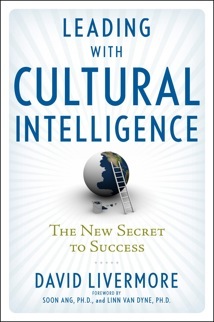
absolutely democratic?:
This week on different days depending on the different election rules there are elections all over Europe to elect members of the European parliament. Since when has there been the United States of Europe I hear you ask? Well no there is no such thing as the USE but we do have the 27 member European Union which many years ago decided to inject this organization with more directly accountable democracy by having a European Parliament. The sad thing is that people don’t seem to have any European identity and the results will simply be a reflection of national politics in each country with a lot of easy protest voting because of the perception that the result doesn’t matter. What we need here in Europe is a good dose of cultural intelligence maybe! So we’ll concentrate on that in this show.
absolutely intelligent:
In the last show we heard about a practical illustration of the way in which you can be actively culturally intelligent and this phrase is obviously very attractive because it is not only being used by Elisabeth Plum here in Denmark who I talked with in my last show but also by an organization calling itself the Cultural Intelligence Center in the US. But the Cultural Intelligence Center do not use the phrase Cultural Intelligence in exactly the same way as Elisabeth Plum. So I talked to David Livermore to find out more. So what is the difference between the CIC and the Danish brand of cultural intelligence? It turns out that the answer is a fourth critical strategy factor in addition to Plum’s three of action, knowledge and emotion. In fact David Livermore has just finished writing a book about how his brand of cultural intelligence can be applied to business situations. Called ‘Leading with Cultural Intelligence – the new secret to success’ it will be published in October. Click on the David Livermore link to find out more.
absolutely cross border:
It turns out that there are a couple of self-assessment quizzes on the CIC website, which confusingly has the web address culturalq.com, and I wanted to know how useful these might be. So to test one of these out I recruited Greg Houfe in the UK who may shortly be starting a project in Denmark to see how culturally intelligent he was prior to working with Danes and Norwegians. What score would he get?
absolutely famous:
Debbie Swallow in England asked:
‘Can you help? I’m in need of a list of well-known people (perhaps known in their own cultures even if not internationally) who we would consider as having cultural intelligence. I want to cite them as being role models.’
Well I thought about this and it turned out to be a very difficult question. In the end I thought that famous people were likely to be the people who least need to be culturally intelligent because we tolerate all sorts of eccentricities of our celebrities whether they be politicians or film stars. In fact politicians tend to be overly nationalistic while film stars such as Elisabeth Taylor have a reputation for being very demanding as they travel around. So there’s the challenge. Can you think of anybody who is well known, at least in your country, who you would rate as culturally intelligent? The only suggestion I could come up with was … don’t laugh now … Ray Mears, the survival expert. Why? Because for him survival means being acutely aware of your environment and where that includes people, he tends to make an effort to find out about them and interact with them. You surely must have a better suggestion than this! And if you do then please add it as a comment to this post.
The next show will be coming to you on 12 June from Germany.
So long…stay tuned!
The host of this show is: Anne Fox
Editor: Jan Warnecke


